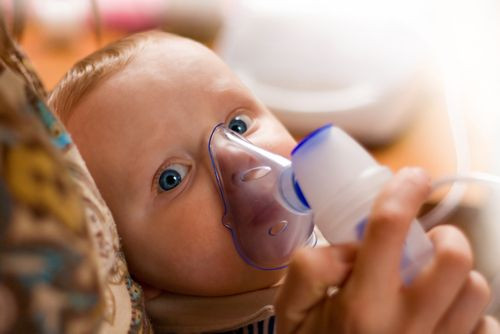Secondhand Smoke Could Cancel Out Asthma Treatment With Destruction Of Key Enzyme

Parents who smoke at home and whose children suffer from severe asthma may be counteracting the effects of the child’s asthma treatment, a new study finds, as the oxidants in cigarette smoke were shown to be capable of destroying key anti-inflammatory enzymes in asthma medicine.
Children whose parents smoke already face twice the risk for starting to smoke than do kids without smoking parents. And while overall smoking rates are on the decline, the cross-generational effects could obviate cessation’s benefits — Britain recently passed a law, effective next year, that bans smoking in cars while children are present. Now, researchers at Imperial College London suggest there’s evidence to limit smoking in homes, despite the obvious hurdle of enforcement.
“Passive smoking in the home and in cars is damaging to the lungs,” lead researcher Professor Peter Barnes told Medical Daily. “What our study shows is that it can stop a key asthma treatment — inhaled steroids — from working properly, so it means that asthma is not as well-controlled.”
Critically, the team found in their small study of 19 children that the nine kids who came from homes where the parents smoked showed substantially lower levels of the enzyme HDAC2, which must be present for the anti-inflammatory steroid component of asthma medication to do its job. Cigarette smoke contains harmful oxidants that can introduce free radicals into the body — unstable molecules that can replicate to the point of cell death. Children whose parents smoked had HDAC2 levels half that of the non-smoking group.
As a respiratory disease, asthma is characterized by chronic inflammation in a person’s airways that makes breathing difficult. To offset the inflammation, asthmatics typically rely on an inhaler to deliver a corticosteroid, which binds to certain receptors in the body’s cells to stop the abnormal inflammation signal. Children who live in smoking homes, Barnes explains, were shown to have the same resistance to these steroids as adults who actively smoke.
So what hope of protection do children have if a parent smokes at home? The ideal solution, at least in Barnes’ eyes, is banning smoking at home when children are present, much in the same way the forthcoming ban will apply to cars. The obvious obstacle, however, is that no police officer will post up by the laundry room, waiting for an unsuspecting parent to pass by. A more realistic goal is education.
“Although banning smoking in the home with children is desirable it would be very difficult to enforce,” Barnes said, “so we can best reduce this by education of the general public about the harm of cigarette smoking in enclosed spaces such as houses and cars.”
Many parents, for instance, probably don’t know that the toxic chemicals pouring out of their cigarettes eventually settle on the furniture around their house, putting kids at risk for “third-hand smoke.” Or that smoking endangers a family’s pets as much as it does babies and children. The overall goal, Barnes argues, is painting smoking as a public health concern, not a personal choice of self-destruction. For the million or so kids in the UK with asthma, and the millions more worldwide, Barnes said in a news release, the study highlights how pervasive the habit can be.
“The mechanism we’ve identified,” he said, “will be a target for new treatments to help children with severe asthma.”
Source: Kobayashi Y, Bossley C, Gupta A, et al. Passive Smoking Impairs Histone Deacetylase-2 in Children With Severe Asthma. Chest. 2014.



























